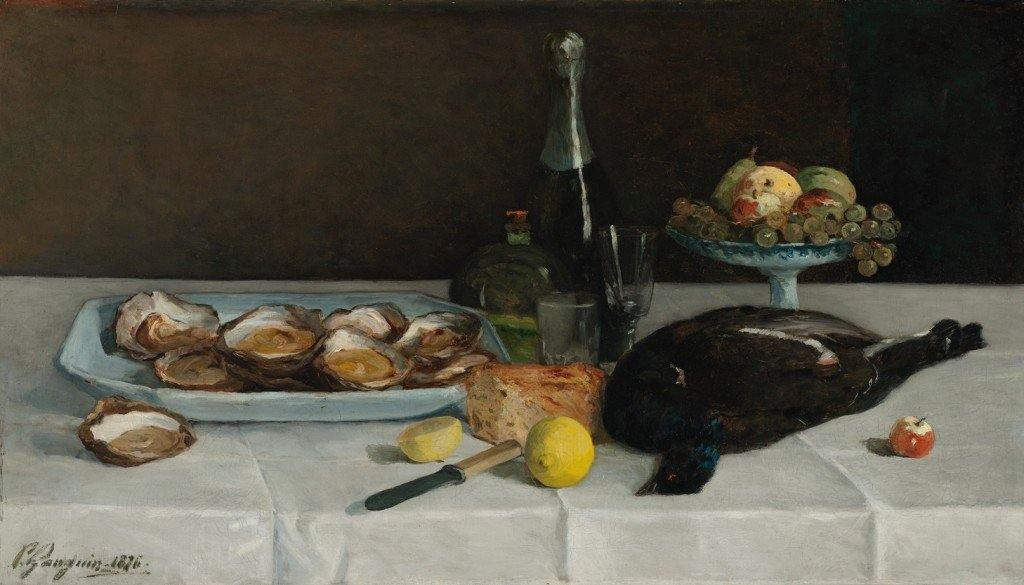Description
Paul Gauguin's Still Life With Oysters is a Post-Impressionist masterpiece that has captivated art lovers for more than a century. This painting, created in 1889, is a perfect example of Gauguin's artistic style, characterized by his bold use of color and his focus on simplicity and purity.
The composition of the painting is impressive. Gauguin uses a diagonal perspective to create a sense of depth and movement in the image. The eye is drawn to the center of the painting, where the oysters are located, which are the main focus of the work. The way in which Gauguin has arranged the objects on the table is very careful, and each element seems to be in its perfect place.
Color is another prominent aspect of this painting. Gauguin uses a bright, saturated color palette to create a sense of vitality and energy in the work. The warm tones of the objects on the table contrast with the dark blue background, making the objects appear even more vibrant.
The story behind this painting is fascinating. Gauguin created it during his stay on the island of Tahiti, where he sought to escape modern life and find the simplicity and purity that he believed had been lost in Western society. The still life with oysters is a perfect example of his search for beauty in the simplicity of everyday life.
There are some lesser known aspects of this painting that are also interesting. For example, Gauguin is believed to have used a painting technique called "dry painting" to create the texture of the oysters and other objects on the table. This technique involves applying the paint in thick layers, then scratching the surface with a tool to create a rough texture.

